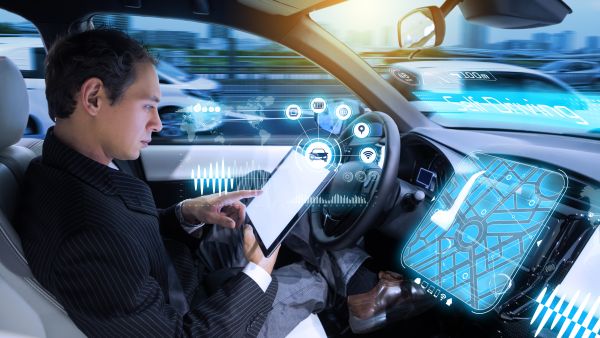It's 2020, the year we thought we'd be boarding flying cars and living in outer space. Yet, here we are, still unable to trust driverless cars.
Despite numerous announcements from car manufacturers about plans to bring self-driving cars into existence, there have been very little to no actual autonomous cars on the roads, except for a few cities where tests are being conducted to determine whether they're ready for everyday use.
Self-driving cars are hitting the roads in Texas. (Now This) #AV #AutoIndustry pic.twitter.com/LUfh7MUJt2
— James V. Gingerich (@jamesvgingerich) March 1, 2020
As early as 2009, Google announced its first project to build the Waymo auto-run car, but 11 years - and numerous projects - later and it's still impossible to fully trust self-driving cars.
Driverless cars are supposed to improve quality of life by easing our commuting burdens, if even partially. The idea is that these cars would be linked all together in the same network that allows an immediate exchange of data that is collected by sensor-triggered software. The sensors are tasked with reading the surroundings of the car in order to determine its next moves in harmony with other vehicles on the road.
Self-driving cars struggle in rain and snow, which wreak havoc on LIDAR sensors and cameras. @MIT_CSAIL researchers have developed a new system that uses ground-pentrating radar to navigate via the unique fingerprint of soil, rocks, and roots. https://t.co/AISWKfrXii pic.twitter.com/BZdyhFeSzA
— Massachusetts Institute of Technology (MIT) (@MIT) February 28, 2020
The big sell of self-driving cars was the promise that they would minimize traffic congestion and make roads safer with ideally fewer crashes and fewer victims.
The Drawbacks
In addition to many fatal accidents caused by the few partially or fully automated cars that have been tested, giving technology full control on the roads and letting it take over the driver's seat has been quite challenging.
Algorithms haven't been fully developed yet, Internet connections are still unable to maintain speedy and steady data exchange, and software continues to be vulnerable to hacking. These are all factors that have made it hard for people to put their faith in complete automation.
Ideally, self-driving cars are supposed to be better drivers than humans, and lead to lower mortality rates from car accidents, but software malfunctions and unexpected errors have been drawing a number of warnings that have slowed the emergence of these system-run cars.
Experts report that different softwares responsible for operating cars autonomously are still vulnerable to hacking. This breach could enable many parties to gain access to the car, control its movement, and subsequently threaten passengers' safety.
Self-driving cars at risk of car hacking and ransom demands, say experts at SXSW https://t.co/XMsWwCzXeC pic.twitter.com/diOlr2Izm5
— RSA Insurance Group (@rsagroup) March 14, 2016
Car developers will have to take all these concerns into consideration if they want to create a truly autonomous car that can win users' confidence.
But smart software that can run cars independently will need smart roads as well, which means that cities will need to rebuild their infrastructure to ensure crash-free car flow once fully-automated cars are well-developed.
As engineers keep working day and night on cutting-edge technologies that bring autonomous cars to our roads, they may soon be able to utilize strong internet connections promised by 5G and 6G networks, allowing for better communication and data exchange between cars.
Nowadays, with the coronavirus outbreak hitting different corners of the world, technology is being used to minimize human interaction as a response. Self-driving cars could have served as a particularly useful solution for people desperate to avoid the risk of getting infected from being in close proximity to others in the same vehicle.
Fiat Chrysler partners with self-driving car startup AutoX to bring a robo-taxi service to China by Q3 2020
— Sortiwa (@Sortiwa) February 10, 2020
In brief: As the novel coronavirus continues to spread throughout China, some foreign companies are limiting their operations in the... https://t.co/VuOLekc3ZP pic.twitter.com/JUlWhv7ohF






![Turkish series "Ask-ı Memnu" [Forbidden Love]. Turkish series "Ask-ı Memnu" [Forbidden Love].](/sites/default/files/styles/d02_traditional/public/2026-02/%D8%A3%D8%A8%D8%B7%D8%A7%D9%84-%D9%85%D8%B3%D9%84%D8%B3%D9%84-%D8%A7%D9%84%D8%B9%D8%B4%D9%82-%D8%A7%D9%84%D9%85%D9%85%D9%86%D9%88%D8%B9.jpg?h=c673cd1c&itok=nhq8-5rH)
